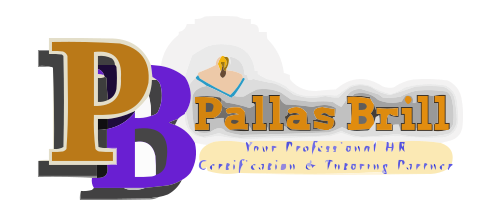
CIPD Assignment Help - 5CO02.
AC 1.1: What is Evidence-Based Practice?
The current business environment is characterised by various trends and dynamics. From stiff competition and a diverse workforce to modern technologies and strategic plans, people professionals are prompted to formulate and implement profound solutions that will have significant outcomes. This introduces concept and significance of evidence based practice (EBP).
Evidence based practice (EBP) refers to the use of various sources and information to make an informed and reliable decision. EBP is defined by a shift from outdated acquired wisdom and superficial fixes to critically appraising reliable and credible evidence and information to support an idea, hypothesis, and concept. EBP is not only effectively applied in the healthcare sector but also in the human resources management (HRM). Effective leadership and management leverage the benefits of EBP to ensure suitable and favourable outcomes. EBP, therefore, entails meticulous, precise, and astute application of evidence from variety of credible and reliable sources to promote the likelihood of a favourable outcome. Notably, evidence based practice is a significant skill among people professionals as demonstrated in the CIPD Professional Map (Figure 1 Below).
Figure 1: CIPD Professional Map
Advantages of Evidence Based Practice
There are several advantages of evidence based practice. Centrally, evidence based practice guarantees that decisions are centred on facts, which makes them objective. This is significant since the decisions will not be dependent on outdated intuition and discernment. Therefore, evidence based practice increase the likelihood of effective and favourable outcomes that will have positive impacts to the organisation. Another advantage of evidence based practice is that it offers additional gravitas to leaders, managers, and other professionals. An individual that demonstrates understanding of evidence-based practice concept is likely to increase their influence on others and there is high likelihood of having more positive impacts at the workplace. Another advantage of evidence based practice is that it results in increased body of knowledge; thus, ensuring a more trustworthy profession.
Disadvantages of Evidence Based Practice
One of the key setbacks of evidence based practice is that it is a time-guzzling process. To profoundly make informed decisions, one needs to gather sufficient data and credible information, which requires time. Another disadvantage of evidence based practice is that it leads to overthinking and possibility of paralysing analysis. There is vast information and data collected and analysed for EBP. The conflicting ideas surrounding a subject may affect the analysis and further result in a complex process. Additionally, there is a major disadvantage about evidence-based practice regarding over-reliance on data and research, which on the other hand limits flexibility.
In summary, evidence based practice is a crucial aspect in decision-making and making informed choices and although it requires sufficient information and credible sources, it plays an important role in increasing the likelihood of positive outcomes and eliminating bias. Professionals should focus on building and developing evidence-based skills.
For a full 5CO02 Cipd Assignment engage us via
WhatsApp: +447424771433 Email: pallasbrill@gmail.com
Additional Questions and Answers
What is Cultural Competence?
What is the Importance of Cultural Competence in HRM?
Human resources professionals in contemporary organisations work with various individuals regardless of their diversity affiliations. In line with regulations such as the Equality Act of 2010, companies must mitigate discrimination at the workplace, characterised by treating every person equally. Issues such as age, gender, race, and ethnicity should not be the foundation of HR services. Cultural competence among HR professionals entails one of the core skills necessary for delivering the people profession. It involves not using the individual’s difference when offering HR services.
Cultural competence in HRM is the foundation of ensuring that every individual is treated equally and averting the possibility of discrimination and bias. These aspects are critical in promoting the employees’ satisfaction and motivation. Cultural competence is also central in enhancing the relationship between the leadership and the employees, important in fostering better performance and motivation at the workplace. Drawing from Herzberg's dual-factor theory, cultural competence is fundamental and is reflected in the hygiene elements. As demonstrated in figure 1 below, hygiene factors in Herzberg's two-factor theory include the relationships and status underpinned by cultural competence.
Figure 1: Herzberg Two Factor Theory
Other benefits of cultural competence in HR practice include;
· Enhancing the working relationships: This is achieved through every stakeholder being contended with the working environment where there is respect to every individual regardless of the diversity affiliation.
· Improved teamwork: Cultural competence among HR professionals ensures that the employees are grouped according to their strengths and positive values. The mixture of various races and ethnicities in the teams is the foundation of a team-based approach in problem-solving.
· Promotes decision-making process and employees learning from one another: Cultural competence ensures that all employees are respected regardless of their uniqueness. This is vital in teamwork and individuals sharing knowledge.
· Enhances employee engagement: According to CIPD, the academic literature concludes that employee engagement is a psychological state experienced by the workforce. Cultural competence underpins the strategies used to promote employee engagement, including trust and respect for the employees’ differences.
What is Total Rewards?
Rewards are critical in demonstrating the company’s appreciation of its workforce. Achieving strategic rewards that the employees feel valued is a long-term aspect. Rewards demonstrate the balance between the employees’ and organisational needs. On the one hand, companies require the employees to demonstrate competence and improved skills to ensure the goals and objectives. On the other hand, employees need to feel appreciated and valued for their contribution to the company. Strategic rewards are vital in fostering internal and external motivation.
The total rewards concept entails all elements of the work valued by the employees. Primarily, the total rewards entail a combination of financial and non-monetary elements. The final aspects include the basic pay for the individual in exchange for the services offered. The basic pay is calculated in a standard approach: hourly, weekly, and monthly. Other monetary aspects include bonuses and commission for meeting the organisational objectives. The non-monetary elements in the total rewards comprise paid holidays, recognition, and growth and development opportunities. These rewards are critical in achieving the employees' intrinsic and extrinsic motivation for better performance. The total rewards significantly impact the cultural change since they can achieve the individual’s empowerment. For instance, growth and development opportunities equip the employees with the right skills and competencies according to the firm’s needs.
The relationship between the total and strategic rewards concepts is reflected in the approaches and the objectives. Strategic rewards aim to ensure that the company achieves its goals and objectives by enhancing the employees’ motivation. The total rewards concept is an important approach in accomplishing this objective. For instance, incorporating the learning and development opportunities for the employees as part of rewards equip the individuals with knowledge and skills that can be applied to achieve the firm’s objective. Another example entails recognition as part of the total rewards. Such a non-financial aspect enhances the workforce motivation, increasing their productivity. A key aspect in strategic and total rewards is the employer’s knowledge of designing and implementing the most suitable rewards approach.



